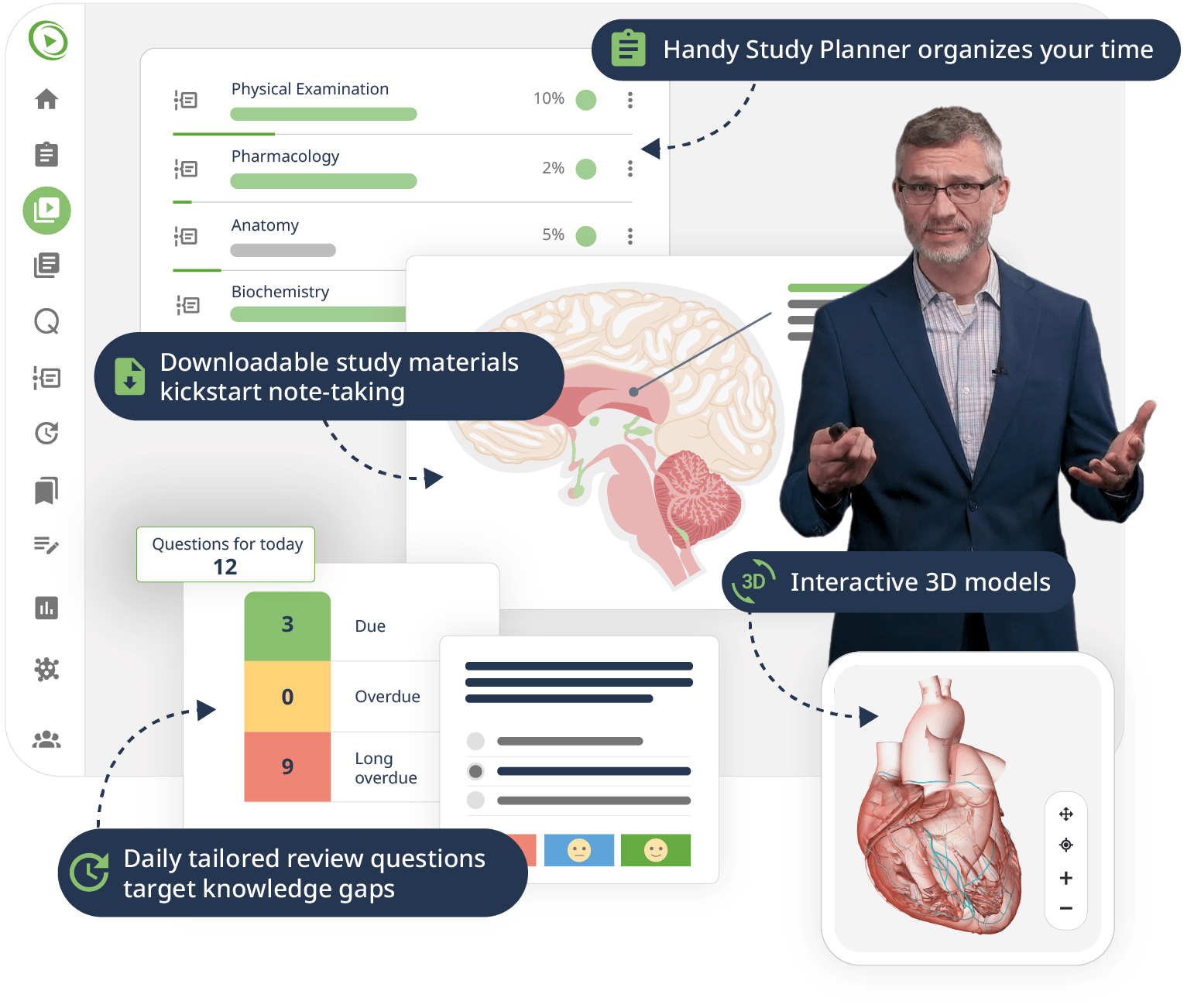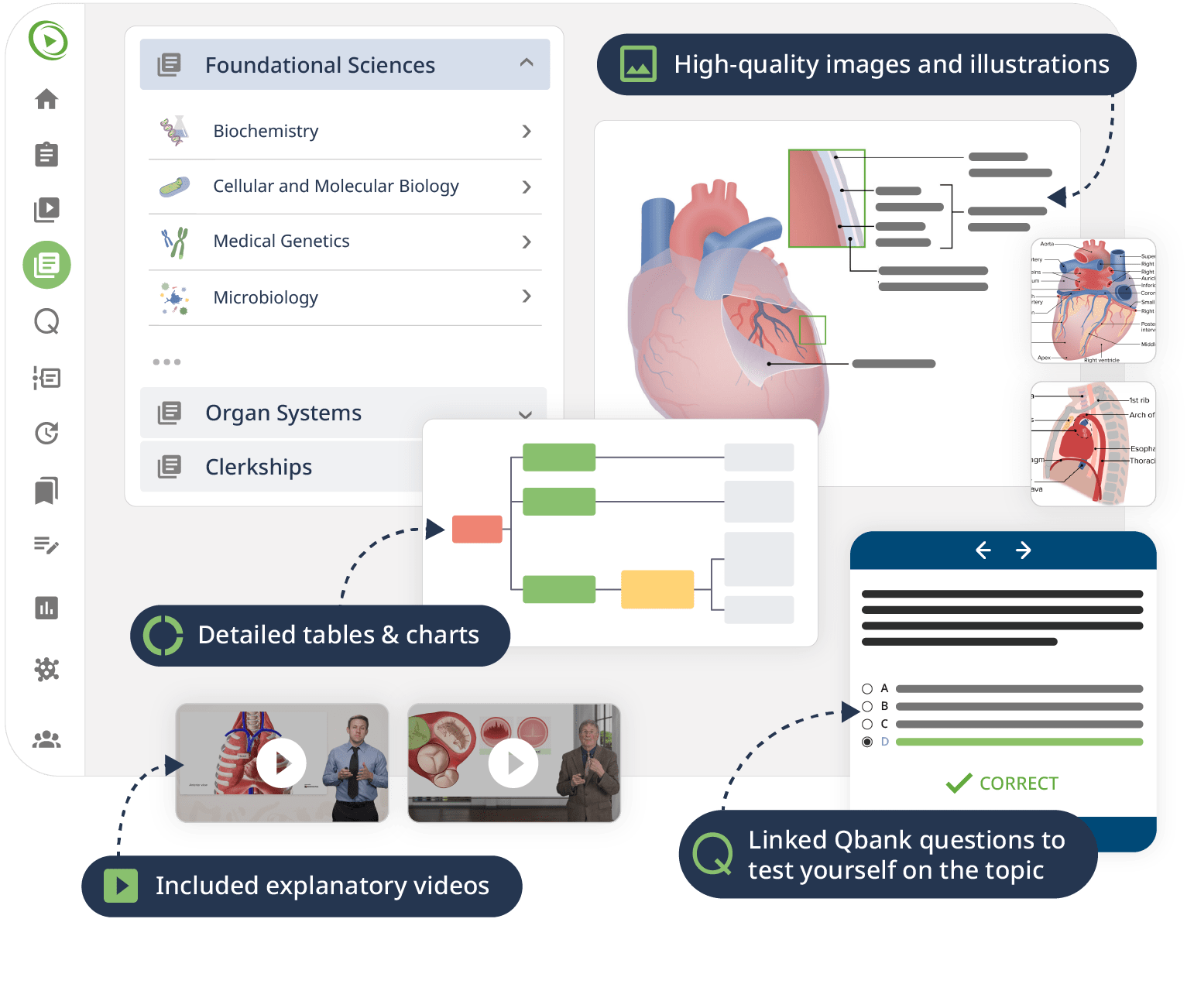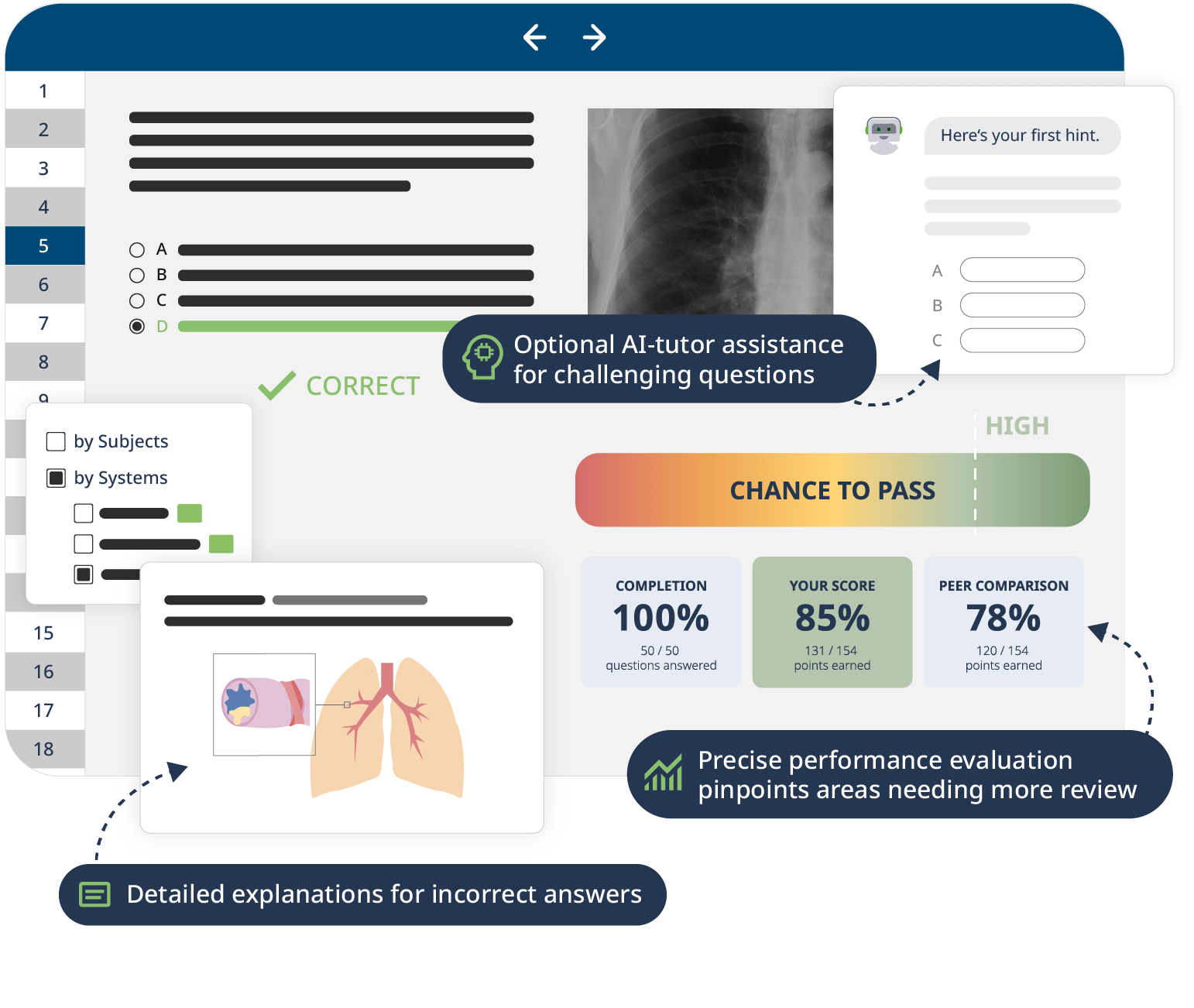Start your online pathology course
with Dr. Richard Mitchell from Harvard Medical School
Pathology lies at the heart of every diagnosis and treatment decision. However, its vast scope and the intricate details of disease mechanisms make it a challenging subject to master.
This course dives into the most important conditions affecting every organ system, focusing on the pathophysiology and stages of disease progression. Through an engaging series of Video Lessons, you will rain a robust understanding of how diseases manifest and evolve. Experienced pathologist Dr. Richard Mitchell from Harvard Medical School explains how the cell adapts to injury, necrosis, inflammation, wound healing, and neoplasia.
Interactive quiz questions, downloadable study materials, and a powerful USMLE-style Qbank further support your learning, designed to boost retention and understanding. By the end of this course, you will have a solid overview of pathology and confidently interpret complex clinical data to make well-founded decisions in patient care.
“Pathology helps us understand the “big picture” by looking at things at the smallest level.”
– Dr. Richard Mitchell


















